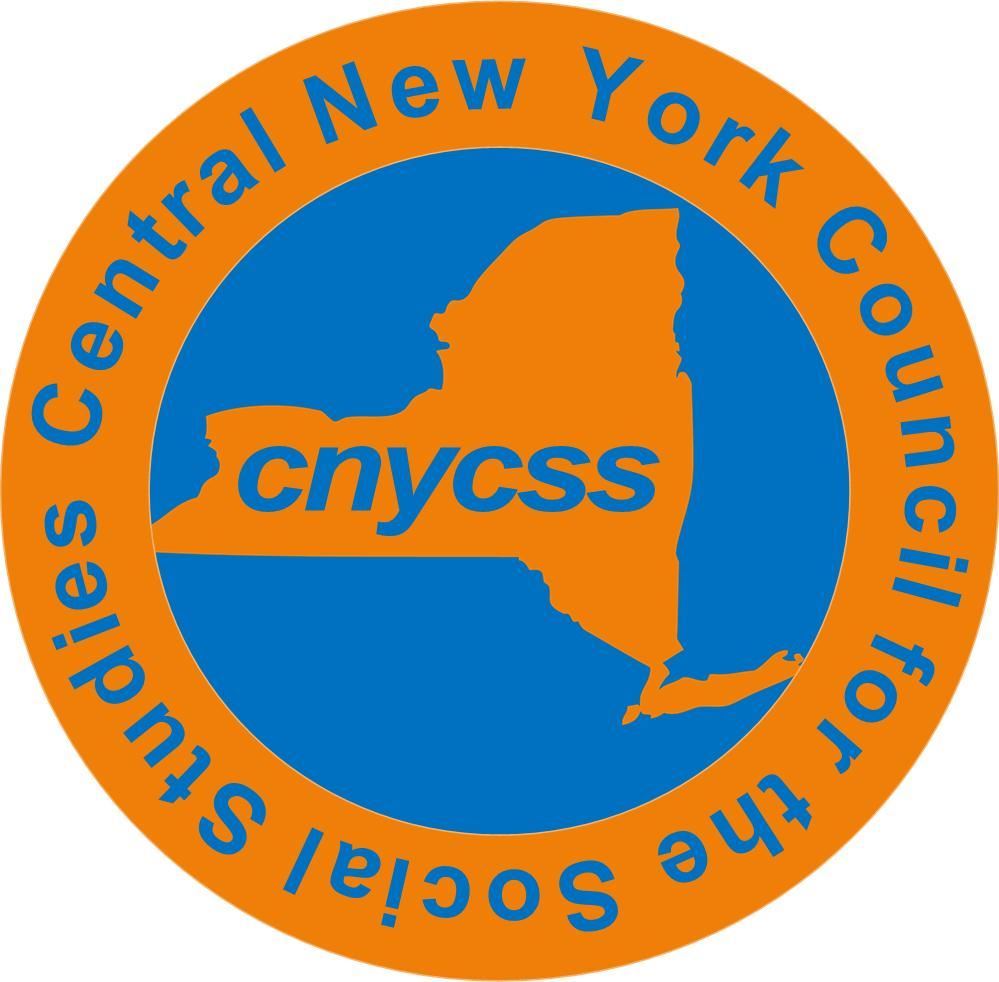
2012 ANNUAL CONFERENCE
Director, Law, Youth, and Citizenship League, New York State Bar Association SESSION A SESSIONS (in alphabetical order) A1: THE ELECTION OF 1860 AND SOUTHERN SECESSION Dr. Douglas R. Egerton, Department of History, LeMoyne College Dr. Egerton, who has taught in Le Moyne's History Department since 1987 has focused his research over the years on the intersections on race and politics. His books include Years of Meteors: Stephen Douglas, Abraham Lincoln and the Election That Brought on the Civil War AND Death or Liberty: African Americans and Revolutionary America A2: 400th ANNIVERSARY: THE TWO ROW WAMPUM TREATY and Bringing Native American History to Life Andy Mager, Syracuse Peace Council Project Coordinator for the Two Row Wampum Renewal Campaign This presentation will share information about the Treaty which provided the foundation for relations between the Haudenosaunee and the Europeans . 2013 is the 400th Anniversary of this treat6y negotiated with Dutch traders and settlers. The Onondaga Nation and its neighbors are developing curricular materials, samples of which will be part of the presentation, for statewide educator use to mark the occasion. A3. WOMEN'S RIGHTS: WHERE ARE WE NOW? Dr. Deborah Pellow, Department of Anthropology, Syracuse University Dr. Pellow, whose anthropological research has anthropological research has centered on West Africa, and on women's roles and relationships in history, will focus on how this year's U.S. Presidential campaign is bringing issues of women's pay and their reproductive health rights to the forefront of our political debate, professional credentials notwithstanding. A4 HOW DIGITAL AND SOCIAL MEDIA ARE TRANSFORMING EDUCATION Dr. William J. Ward, S. I. Newhouse School of Public Communications, Syracuse University Dr. Ward, often quoted by NPR, the Huffington Post, the Wall Street Journal, the New York Times, USA Today and the Associated Press will look at how social communication increases productivity, saves money and time, and improves engagement and satisfaction. Most importantly for educators, he will explain how, done correctly, this combination enhances the quality and efficiency of teaching, research, learning, communicating, collaborating and creating. | Social Studies Teacher, Union President, SUNY Cortland Lecturer at Cortland Enlarged City School District SESSION B SESSIONS (in alphabetical order) B1 PUBLIC PERCEPTION OF THE SUPREME COURT Dr. Keith Bybee, College of Law and the Maxwell School of Citizenship and Public Affairs, Syracuse University. Keith Bybee, the Alper Judiciary Studies Professor at SU and the director of the Institute of the Study of the Judiciary, Politics and the Media will discuss what the American Public now thinks of the Court, as well as the relationship between public perceptions and judicial legitimacy with a discussion informed by the specific example of the Supreme Court's recent ruling on healthcare reform. B2 ABRAHAM LINCOLN, RACE AND SLAVERY Dr. Douglas Egerton, Department of History, Le Moyne College In this his second session of the day (See AI) Dr. Egerton will focus on our Civil War President, particularly as concerns Lincoln's beliefs regarding Slavery and Race as we commemorate the 150th Anniversary of the War and his Presidency. B3 LESSONS OF OCTOBER: THE CUBAN MISSILE CRISIS AFTER FIFTY YEARS Dr. John Langdon, Professor Of History, Le Moyne College Dr. Langdon, our "back by popular demand" Presenter every year, will focus on the lessons about leadershipin an increasingly complex world which can be learned from the Missile Crisis. How close did the world actually come to nuclear war? how has recently-disclosed information altered our view of what happened in October, 1962? B4 THE ERIE CANAL AND THE VALUING OF LOCAL AND STATE HISTORY Scott Peal, Onondaga Historical Association Meet Syracuse’s own James Geddes who helped to survey an architectural feat in it s day, the Erie Canal. Mr. Geddes will guide you through the canals history from its earliest conception to its busiest days. You will also be introduced to those who lived and worked on the waterway. Anecdotes and interactive activities will allow the audience to become part of the Erie Canal experience. |
Elizabeth Sheffer, Educational Services, NYSUT SESSION C SESSIONS (in alphabetical order) C1 THE EXILE OF NAPOLEON BONAPARTE THROUGH THE MEMOIRS OF FELLOW EXILES Thomas Barden, Social Studies Teacher at Marcus Whitman HS, Adjunct History Professor at SUNY Geneseo A Fellow in the International Napoleonic Society, Barden will focus on the human side of Napoleon Bonaparte as revealed through the memoirs of those who shared his exile on the island of St. Helena: 1815-1821. A unique opportunity for European History educators. C2 IS EXTREMISM THE NEW NORMAL? Dr. David Bennett, Professor of History, Maxwell School, Syracuse University Dr. Bennett, the Laura J. and L. Douglas Meredith Professor for Teaching Excellence, a favorite Presenter for our PD Day Conferees, is noted for his expertise and his published works on Modern Military History, 20th Century American History and Political Extremism. He will discuss the claim that extreme political and social attitudes have become a permanent, "new normal." C3 RELIGION AND AMERICAN POLITICS Dr. Timothy Byrnes, Professor of History, Colgate University Dr. Byrnes will reflect on the role religion has played, and IS playing, in American Politics. In an era when Religion is very much out front in many political debates, what perspective can we gain from looking back at other times and circumstances in which Religious beliefs have entered the public arena. How does current religiously-based political activism compare with, say that in the era of Martin Luther King and the Civil Rights Movement? C4 THE CHINA CHALLENGE - SOME ECONOMICALLY-INFORMED REFLECTIONS Dr. J. David Richardson, Professor Economics and International Relations, Maxwell School, Syracuse University Another of our most popular presenters in our recent Conferences, Dr. Richardson asks: how should Americans be thinking about China these days - as a "rising" partner, rival, threat, or what? Economically, diplomatically, militarilly, culturally? What should we make of metaphors like Chimera, Eclipse? Are answers similar looking ahead a generation as looking back? |



 Eileen Gerrish
Eileen Gerrish Lori Megivern
Lori Megivern